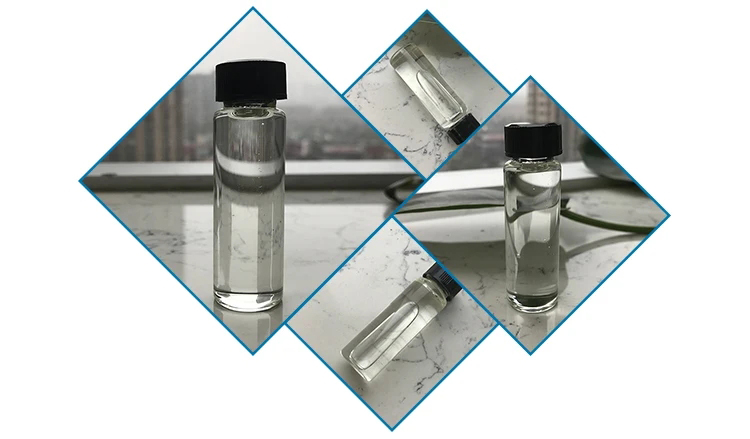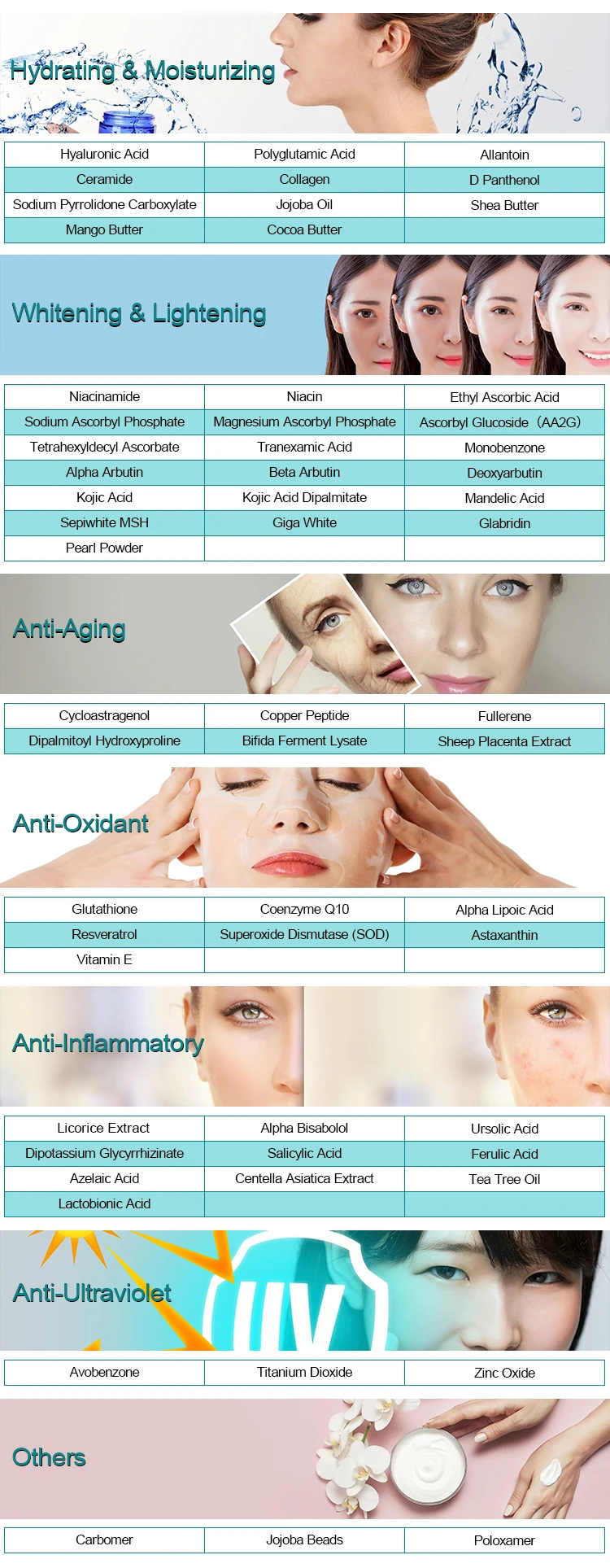Tetrahexyldecyl Ascorbate is a stable, oil-soluble form of Vitamin C commonly used in skincare products. It is known for its antioxidant properties and ability to brighten the skin. When incorporating Tetrahexyldecyl Ascorbate into skincare formulations, manufacturers typically follow specific materials and methods. Here is a general overview:
Materials of Tetrahexyldecyl Ascorbate:
Tetrahexyldecyl Ascorbate: This is the key ingredient, and it is an ester of ascorbic acid (Vitamin C).
Base/Carrier Oils: Tetrahexyldecyl Ascorbate is oil-soluble, so formulators often use carrier oils or base oils to ensure proper dispersion and absorption. Common carrier oils include jojoba oil, sunflower oil, or other lightweight oils.
Emulsifiers: If the formulation involves both water and oil components, emulsifiers are used to stabilize and bind them together. Examples include cetearyl alcohol or polysorbate 80.

Antioxidants: Additional antioxidants may be included to enhance the overall antioxidant effect of the formulation. Examples include tocopherol (Vitamin E) or ferulic acid.
Preservatives: To prevent microbial growth and maintain the product’s shelf life, preservatives such as phenoxyethanol or potassium sorbate may be added.
Stabilizers: Stabilizing agents help maintain the integrity of the formulation over time. Some formulations may include stabilizers like lecithin.
Methods of Tetrahexyldecyl Ascorbate:
Weighing and Measuring: Accurate measurements of each ingredient are crucial to achieve the desired formulation. Formulators carefully weigh and measure each component.
Mixing: The ingredients are mixed thoroughly to ensure a homogenous blend. This can be done using various equipment, such as homogenizers or mixers.
Heating and Cooling: Some formulations may involve heating and cooling cycles to melt or solidify certain ingredients. This process helps achieve the desired consistency.
pH Adjustment: The pH of the final product is often adjusted to ensure it falls within the appropriate range for skincare. Citric acid or sodium hydroxide may be used for pH adjustment.
Testing: Quality control involves testing the final product for stability, pH, and overall efficacy. This ensures that the product meets the specified standards.
It’s important to note that specific formulations can vary between products and brands, and the above steps provide a general overview of the materials and methods commonly used in incorporating Tetrahexyldecyl Ascorbate into skincare products.
Treatment of Tetrahexyldecyl Ascorbate
Tetrahexyldecyl Ascorbate is a stable form of Vitamin C that is often used in skincare products due to its ability to penetrate the skin easily and provide antioxidant benefits. It is a lipid-soluble form of Vitamin C, making it suitable for use in oil-based skincare formulations.
In skincare, Tetrahexyldecyl Ascorbate is known for its potential to:
Brighten Skin: Like other forms of Vitamin C, it can help brighten the skin and reduce the appearance of hyperpigmentation.
Stimulate Collagen Production: Vitamin C is known to stimulate collagen synthesis, which can contribute to skin firmness and elasticity.

Antioxidant Protection: It acts as an antioxidant, helping to protect the skin from damage caused by free radicals.
Reduce Signs of Aging: Its antioxidant properties make it effective in reducing the signs of aging, such as fine lines and wrinkles.
Anti-Inflammatory: It may have anti-inflammatory properties, contributing to the reduction of redness and inflammation in the skin.
When incorporating Tetrahexyldecyl Ascorbate into your skincare routine, it is generally applied topically. It is important to follow the product instructions and consult with a dermatologist if you have specific skin concerns or conditions.
As with any skincare ingredient, patch testing is recommended, especially if you have sensitive skin, to ensure that your skin tolerates the product well. Additionally, using sunscreen is crucial when using Vitamin C products to maximize their effectiveness and protect the skin from sun damage.
If you have any specific questions or concerns about Tetrahexyldecyl Ascorbate or its use, it’s advisable to consult with a skincare professional or dermatologist for personalized advice.
